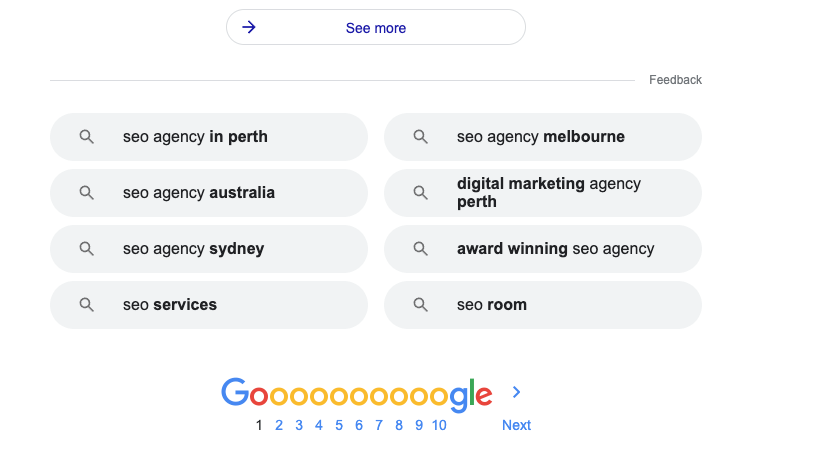
Introduction
SEO is the process of optimizing a website for Google search to earn higher web traffic levels and improve the site’s visibility. The first step in SEO is keyword research, which is identifying and targeting the right keywords for your website. There are a few things to consider when choosing keywords for SEO:
1. The competition for your target keywords – you want to choose keywords that have low competition so you have a better chance of ranking high in Google search.
2. Your business goals – what are you trying to achieve with your website? Identify the keywords that align with your business goals and target those keywords.
3. The relevance of your target keywords – make sure the keywords you target are relevant to your website and its content.
What are keywords?
Keywords are the words and phrases that people type into a search engine to find what they’re looking for. When you optimize your content around those keywords, you can improve your website’s visibility on search engine results pages (SERPs) like Google.
But not all keywords are created equal. Some keywords have more search intent behind them than others, meaning that people are more likely to click on those results when they see them in SERPs.
When you’re choosing which keywords to target, it’s important to consider both the volume and the intent of those searches. This will help you determine whether or not it’s worth optimizing your content around a particular keyword.
How do you determine which keywords to target?
Choosing the right keywords for your website is essential to ensure that your site is found by potential customers online.
When you’re choosing keywords for your website, it’s important to think about your business goals and your competitors. You also need to consider the monthly search volume and how difficult it will be to rank for those keywords.
Finally, you need to think about the searcher’s intent: what are they looking for when they use that keyword?
For example, if you’re a small business targeting local customers, you might want to focus on keywords like “location” or “city you operate in.” Those keywords have a high monthly search volume and sometimes aren’t too difficult to rank for. And since people who are looking for local businesses are likely looking for something specific, like a restaurant or plumber near them, the searcher’s intent is clear.
If you’re selling a product online, you’ll want to focus on keywords that have high commercial intent.
When you are creating or editing your website, be sure to research what keywords people are using to find businesses like yours. There are a number of free and paid tools available online to help you determine which keywords are most relevant for your business.
Once you have determined your keywords, be sure to use them throughout your website, including in the title, description, and tags. You can also use them in your marketing materials and social media posts.
If you need help with this task our SEO Perth Agency offers this service.
Tools to help you find keywords
You need to identify the right keywords to target in order to rank high in search engine results pages (SERPs) and attract organic traffic. There are a number of different tools you can use for keyword research, including Ahref, Google’s Keyword Planner, and the Google search results themselves.

Each of these tools has its own strengths and weaknesses, so it’s important to use several of them to get a well-rounded view of the keyword landscape.
For example, Ahref is great for identifying keywords that your competitors are targeting, while Google’s Keyword Planner can help you find related keywords and estimate how much traffic they could generate.
How to prioritize keywords
When it comes to SEO, it’s important to target the right keywords. But which one should you focus on first?
There are a few things you need to consider when prioritizing keywords:
1. Your website’s goals. What are you trying to achieve with your website? Whether you’re looking to increase brand awareness, generate leads, or sell products, you need to target keywords that align with your goals.
2. Your website’s audience. Who is your target audience? Knowing who your audience is will help you determine which keywords to target.
3. The competitiveness of the keyword. How competitive is the keyword? If the keyword is very competitive, it will be more difficult to rank for it than if the keyword is less competitive.
4. The relevance of the keyword. How relevant is the keyword to your business?
Conclusion
When it comes to your website, understanding and using keywords is essential to your success. Keywords are the words and phrases that people type in Google or other search engines like Bing when they are searching for information online. By understanding what keywords people are using to find your type of business, you can focus your website content on those topics, making it easier for potential customers to find you.
These are the steps you need to take to choose the right keywords for SEO:
1. Understand your business and what you offer.
2. Research what people are searching for.
3. Choose the right keywords for your business.
4. Use those keywords throughout your website.
5. Monitor your website’s performance and make changes as needed.
By understanding the basics of SEO and how to choose the right keywords, you can improve your website’s visibility and increase your web traffic. Following these steps should help you choose the right keywords for SEO and improve your website’s visibility and traffic levels.
Looking for an SEO Agency to help you get the right keywords for your business and optimise your website to rank #1 on Google? The SEO Room is Perth’s #1 SEO Agency that delivers results for service-based and e-commerce businesses. We are one click away, get in touch today!


